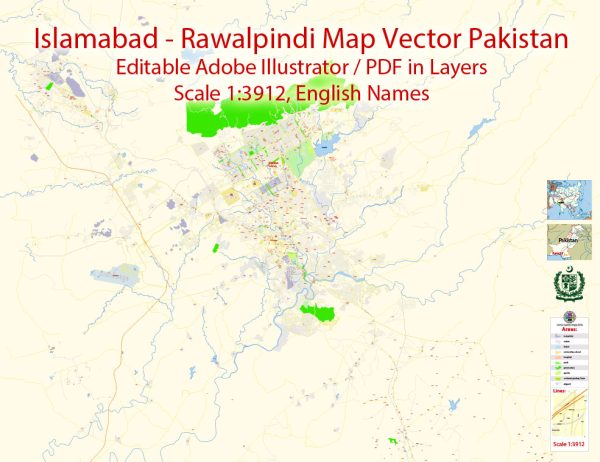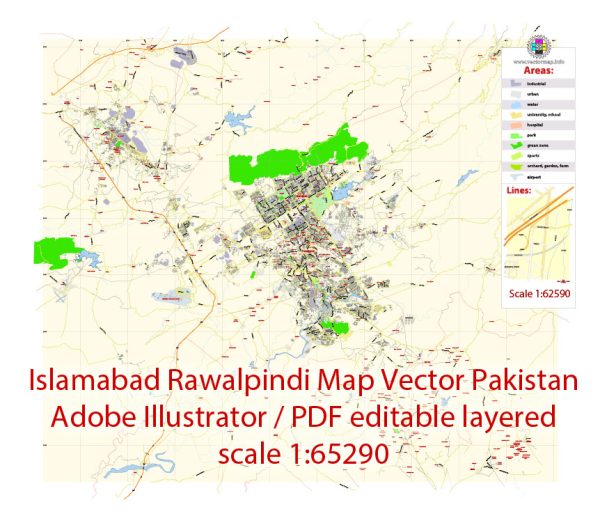Islamabad and Rawalpindi are neighboring cities located in the northern part of Pakistan. While they are separate entities, they are often referred to as the twin cities due to their close proximity and interconnectedness. Here’s a brief description of the urban amenities in Islamabad and Rawalpindi:
Islamabad:
- Capital City: Islamabad is the capital city of Pakistan and serves as the political and administrative center of the country.
- Planned City: Unlike many other cities in Pakistan, Islamabad is a planned city with modern infrastructure and well-designed sectors. It was purposefully built to replace Karachi as the capital in the 1960s.
- Greenery: Islamabad is known for its greenery and scenic beauty. The city is nestled against the backdrop of the Margalla Hills National Park, providing residents with opportunities for outdoor activities and recreational pursuits.
- Government and Diplomatic Presence: The city is home to numerous government offices, foreign embassies, and diplomatic missions.
- Educational Institutions: Islamabad hosts several reputable educational institutions, including universities, colleges, and research centers.
- Shopping and Recreation: The city offers a range of shopping malls, markets, and recreational spaces. F-6 and F-7 sectors are known for their commercial areas and upscale shopping options.
- Cultural and Recreational Facilities: Islamabad has cultural and recreational facilities, including theaters, art galleries, and sports complexes.
- Quality Healthcare: The city has well-established healthcare facilities, including hospitals and clinics, providing quality medical services.
- Transportation: Islamabad has a well-connected road network, and the Islamabad International Airport serves as a major gateway for domestic and international travel.
Rawalpindi:
- Military Presence: Rawalpindi has a significant military presence, with the General Headquarters (GHQ) of the Pakistan Army located in the city.
- Commercial Hub: Rawalpindi is a bustling commercial hub with a mix of traditional markets (such as Saddar Bazaar) and modern shopping centers. It is known for its vibrant street life and diverse markets.
- Educational Institutions: The city is home to various educational institutions, including schools, colleges, and universities.
- Historical Sites: Rawalpindi has historical sites and landmarks, including the Rawalpindi Fort and the Lok Virsa Museum, which showcase the region’s cultural heritage.
- Transportation: Rawalpindi is well-connected by road and serves as a major transportation hub. The city has a central railway station and is a key stop on major highways.
- Healthcare Facilities: Similar to Islamabad, Rawalpindi has hospitals and healthcare facilities that cater to the needs of its residents.
- Diverse Cuisine: The city offers a diverse range of culinary options, with numerous restaurants and eateries serving Pakistani and international cuisines.
Both cities together provide a unique blend of modern amenities, cultural richness, and historical significance, making them important urban centers in Pakistan.



 Author: Kirill Shrayber, Ph.D. FRGS
Author: Kirill Shrayber, Ph.D. FRGS